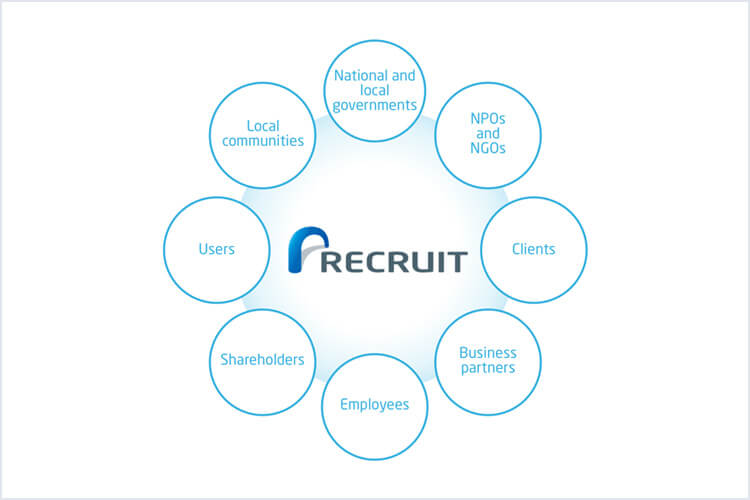Editorial policy
We organize information regarding the Recruit Group's CSR around our five core themes and publish this content online. We strive to cover the full range of information that should be disclosed to all stakeholders interested in our business.
Reference guidelines
Global Reporting Initiative (GRI) Sustainability Reporting Standards Coreoption
· Date of last published report: October 2020
· Reporting cycle: Although it is reported on an annual basis, it is regularly updated with the latest information
Readability considerations
We use an index to provide easily searchable and readable information, taking readability into consideration. We also try to provide graphs, figures, and other illustrative materials in the most appealing visual format.
Contact
Disclaimer
This site includes not only information on the past and present Recruit Group but also plans, forecasts, and predictions based on the management plans, vision, policy, and strategy at the time the information is released. These are assumptions and judgments based on information obtainable at the time the information was provided, and therefore inevitably contain uncertainties. Depending on changes in conditions, results, and other events, future business activities may differ from forecasts and plans.



